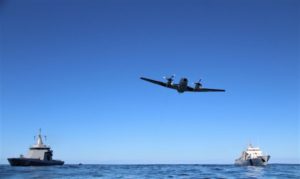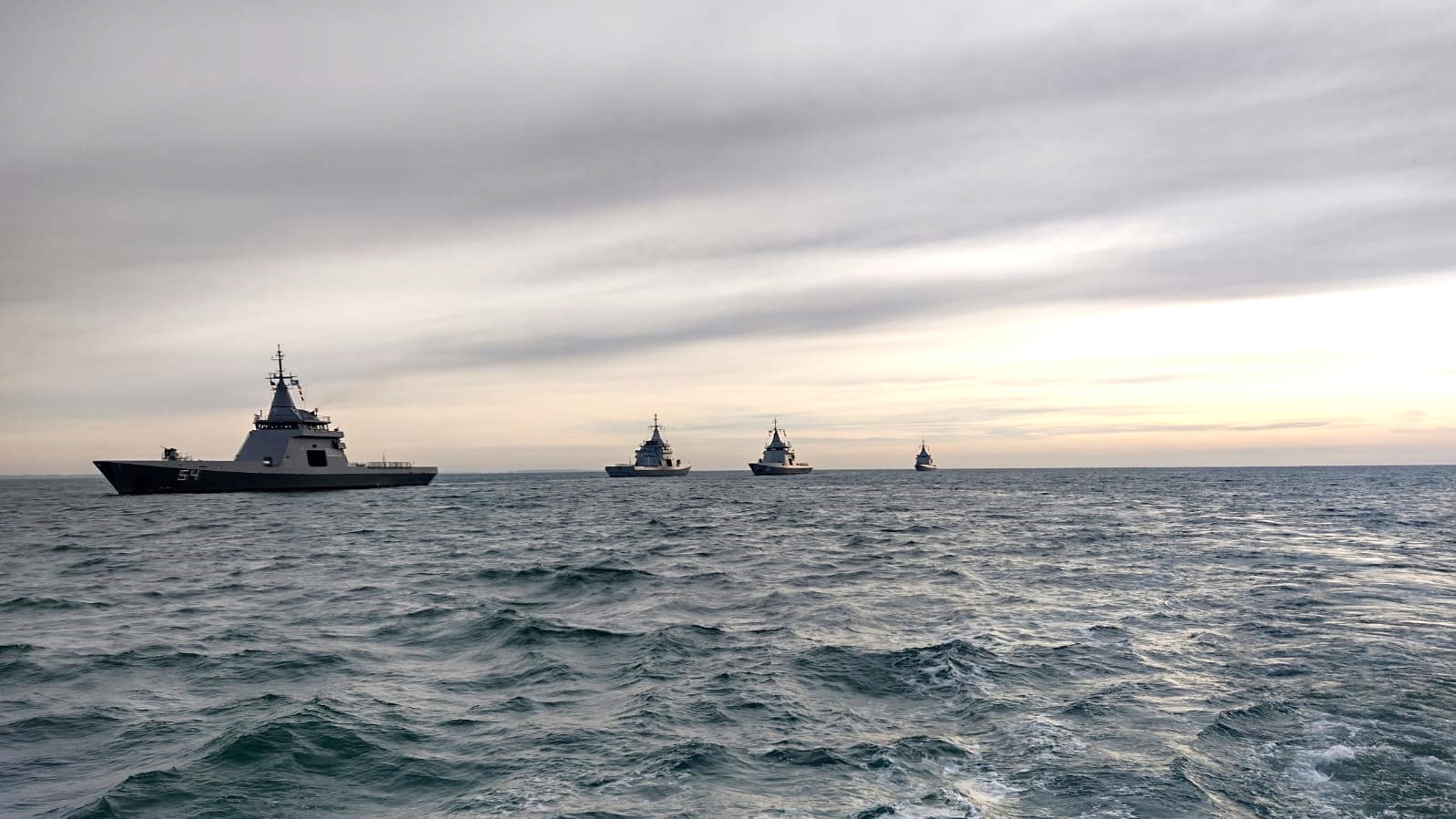The Argentine Navy took delivery of the last of four ocean patrol vessels recently acquired to control illegal fishing on June 2, 2022. The ARA Contraalmirante Cordero ship joins surveillance and control tasks in the South Atlantic, to deter Chinese fishing fleets that trespass Argentina’s maritime boundaries to exploit its fishery resources.
“These four patrol vessels are essential to strengthen the activities of the Joint Maritime Command [CCM], for the defense of our sovereignty. Argentina has a defensive strategy with deterrence and surveillance capabilities, and effective control of its air, maritime, and land space,” Argentine Minister of Defense Jorge Taiana told El Clarín newspaper.
“Illegal, unreported, and unregulated fishing is absolutely linked to China. On any given day we have between 350 and more than 600 Chinese vessels in the area within the sphere of [operations of] U.S. Southern Command,” U.S. Army General Laura J. Richardson, commander of U.S. Southern Command (SOUTHCOM), told Infobae during her visit to Argentina on April 26. “China gets 36 percent of its food sources in the region, not just in Argentina, but throughout the region. We call that malicious activities; they extract resources, but they do not generate investment for the country.”
On January 1, the CCM began operations under the Argentine Armed Forces’ Joint Chiefs of Staff. The agency brings together the Argentine Army, Navy, and Air Force for the first time to combat maritime crimes such as illegal fishing and narcotrafficking, and to control ocean and river areas under its jurisdiction.
“Without a doubt, this unit [the Contraalmirante Cordero ship] gives a boost to operations of surveillance, control, and monitoring of the foreign fishing fleet in the area adjacent to our Exclusive Economic Zone [EEZ],” Argentine Army Colonel José Colombo, head of the Institutional Communications and Press Department of the Armed Forces’ Joint Chiefs of Staff, told Diálogo. “This addition, together with the other three ships, is fundamental for the integration of the Army, Navy, and Air Force, in defense of Argentina’s sovereign interests at sea.”
Minister Taiana, during a June 9 presentation before the Defense Committee of the Argentine Senate Chamber, highlighted the work carried out in the EEZ; where foreign vessels are allowed to navigate but are prohibited from fishing. “We can say that [in the last quarter] there was no illegal fishing within our 200 miles. They did not enter,” the minister said.

The CCM fulfills “a key role” in the exercise of sovereign rights, guaranteeing the protection of maritime natural resources and monitoring compliance with the law in marine protected areas, Col. Colombo said. Fishing activities are controlled “through ongoing and alternating patrolling” between vessels and aircraft of the Navy and the Argentine Naval Prefecture, he said.
“Illegal fishing is a very serious problem in Argentina,” Patricio Giusto, director of the Sino-Argentine Observatory, a nongovernmental organization that studies the Argentina-China bilateral relationship, told Diálogo. “In China, fish consumption has increased in recent years, and many native species are highly coveted by Chinese consumers.”
The Chinese vessels that operate in Latin America are mostly jigging vessels, which specialize in squid fishing, and navigate with automatic identification systems off to avoid detection.
“We are strengthening our operational capabilities for better maritime patrols in the EEZ and the zone of maritime interests; care of renewable and non-renewable resources in the sea, and to fulfill international commitments concerning the capacity to provide support to safeguard human life at sea and improve support to the Antarctic Bases,” Col. Colombo said.









